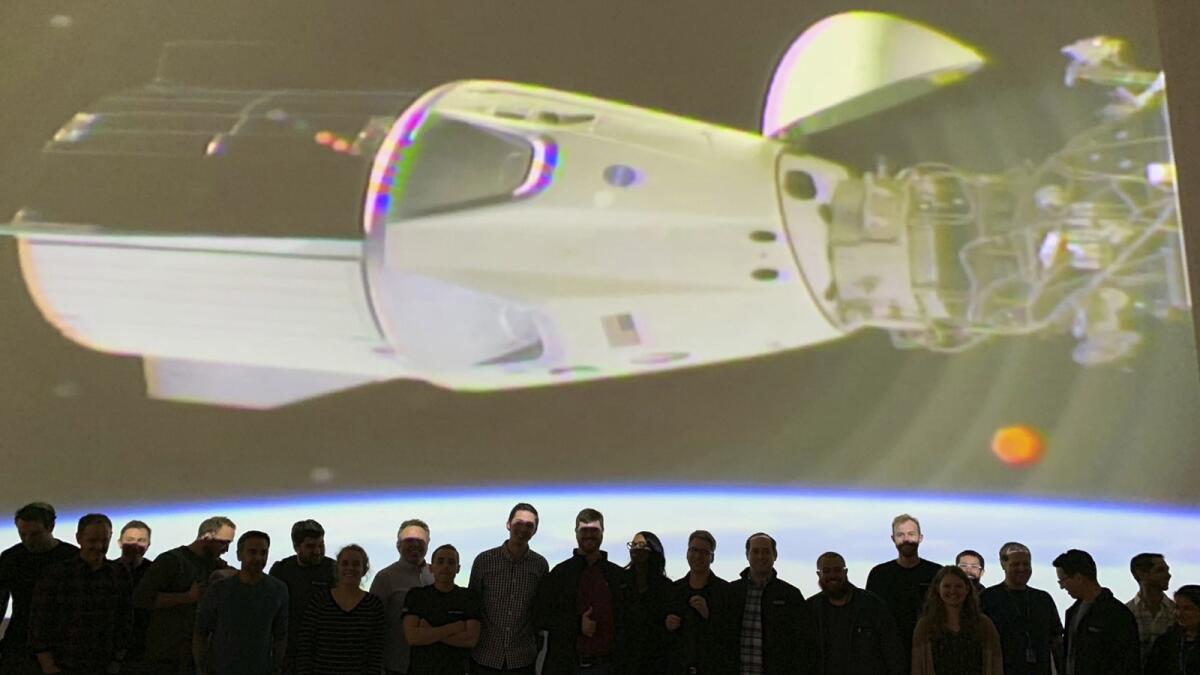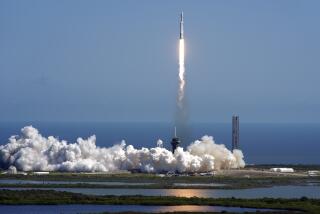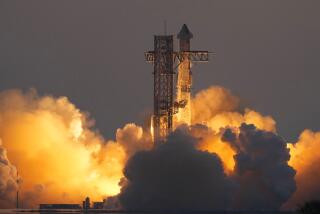SpaceX Crew Dragon capsule successfully docks with space station in test mission

A little more than a day after launch, SpaceX’s Crew Dragon capsule successfully docked with the International Space Station early Sunday morning after autonomously maneuvering itself, marking another major milestone of this test mission.
The capsule did not have humans on board. Instead, it carried 400 pounds of supplies for the space station and a mannequin passenger named Ripley, outfitted with multiple sensors to measure her ride to space.
This was the first time a SpaceX capsule had attempted to attach itself to the station. During the Hawthorne company’s previous 16 resupply missions, its Dragon cargo capsule hovered below the station until it was grabbed by a robotic arm and attached to a port.
This time, the capsule gradually maneuvered itself closer to the station before docking on its own.
Two astronauts aboard the station monitored the Crew Dragon’s progress and sent commands to the capsule until it was about six feet away. At that point, the capsule took over and attached itself to the station in a “soft capture” at 2:51 a.m. Pacific time. “Hard capture,” meaning the capsule firmly latched onto the station via 12 hooks, occurred a little after 3 a.m. Pacific time.
Bob Behnken, one of the two NASA astronauts who will be on the capsule’s first crewed test mission, said it was “super exciting” to see the Crew Dragon dock.
“Just one more milestone that gets us ready for our flight coming up here,” he said on a livestream of the docking.
Astronauts aboard the space station opened the capsule’s hatch a little after 5 a.m. Pacific time after conducting leak and other safety checks and Crew Dragon pressurized.
The Crew Dragon capsule launched early Saturday morning from Florida on a SpaceX Falcon 9 rocket.
It was Crew Dragon’s first test flight and the first launch of NASA’s commercial crew program — a public-private partnership in which the agency awarded SpaceX and Boeing Co. a combined $6.8 billion in contracts to build separate spacecraft that will take NASA astronauts to the space station.
Boeing is set to launch its first uncrewed test mission in April, with a crewed mission no earlier than August. SpaceX’s crewed test flight is set for no earlier than July.
Crew Dragon will remain at the space station for a few days before undocking and splashing down in the Atlantic Ocean early Friday morning, where a recovery ship will be nearby to pick it up.
Musk described the capsule’s reentry as “probably my biggest concern.” Unlike its cargo counterpart, Crew Dragon has emergency-escape thrusters integrated into the capsule’s side, making it less smooth, he said.
More to Read
Inside the business of entertainment
The Wide Shot brings you news, analysis and insights on everything from streaming wars to production — and what it all means for the future.
You may occasionally receive promotional content from the Los Angeles Times.











